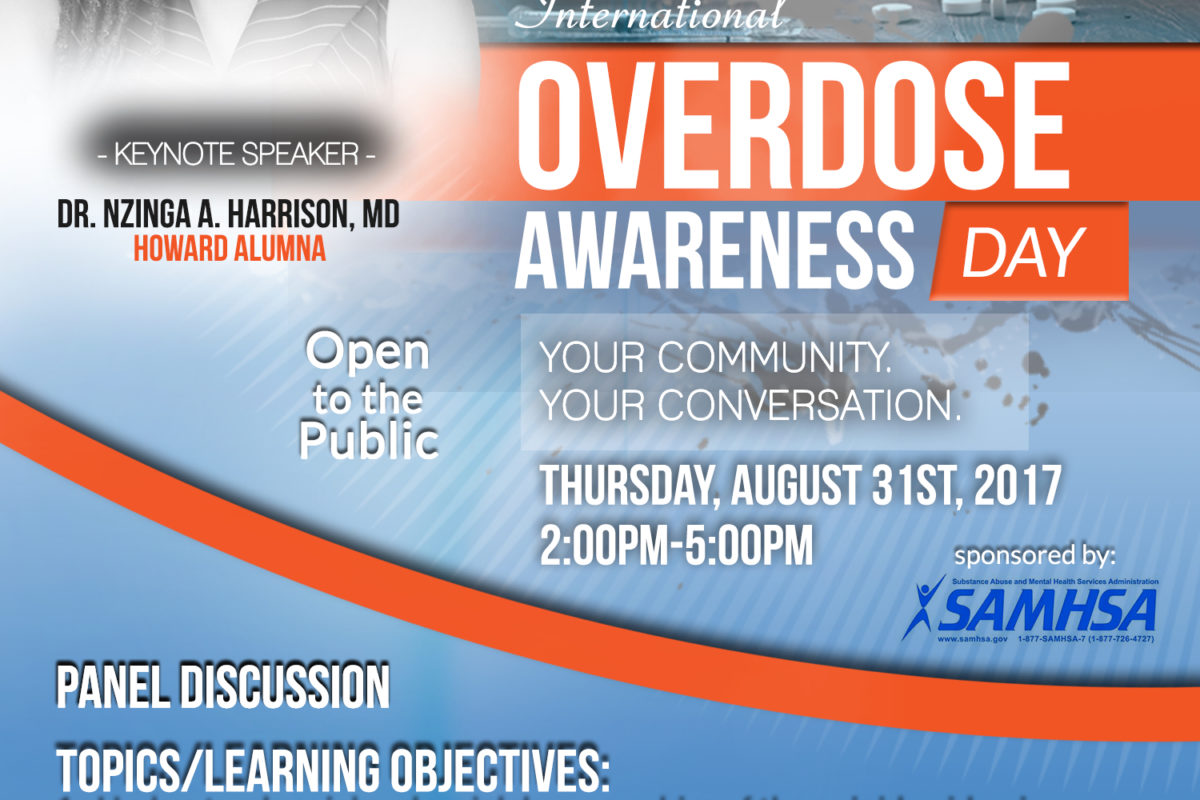Integrated Strategies to Address Opioid Use Disorders in Women
By: Anton C. Bizzell, M.D.
The opioid crisis has a complex set of contributing factors in women and requires integrated strategies and solutions. The Center for Behavioral Health Statistics and Quality (CBHSQ) of the Substance Abuse and Mental Health Services Administration (SAMHSA) reports that 19.5 million females (15.4 percent) age 18 years or older used illegal drugs in the past year, and 8.4 million females misused prescription drugs in the past year . Opioid use and misuse may have a different progression in women as compared to men, due to differences in sex and gender. The National Institute on Drug Abuse (NIDA) at the National Institutes of Health (NIH) defines differences by sex as pertaining to biological differences, and differences by gender as referring to culturally defined roles for women. Research has shown effects on women who use drugs from hormones, pregnancy, menstrual cycle, and menopause. Women have described reasons for using drugs, such as caregiving, depression and anxiety, fatigue, and coping with pain. Women are also affected by adverse childhood experiences, trauma, post-traumatic stress disorder (PTSD), partner stress, and domestic violence .
In the past, women were not included in research studies at the same rate as men, or the data was not reported separately by sex. The NIH and other federal agencies have made significant efforts to include women, and to research the biological differences in women that are important to understanding how substance use disorders develop and how to treat them effectively.
Researchers know that there are some differences in how substance use disorders develop in women versus men, and continued research will seek to better understand these differences .
- Dependence: Women sometimes become dependent after using smaller amounts of drugs for a shorter time period, as compared to men.
- Relapse: In addition to developing dependence more quickly, women may experience more cravings and be more likely to relapse following treatment.
- Biological factors: Science has also shown differences in brain changes, effects on the heart and blood vessels, and increased sensitivity to drugs due to sex hormones. Women may have a higher likelihood of going to the emergency room or dying from an overdose from some substances, as compared to men.
- Psychosocial factors: Psychosocial stressors can be a significant factor in opioid misuse and opioid use disorders (OUDs). Women who experience changes in relationships due to divorce or loss of child custody, as well as those who are victims of domestic violence, are at increased risk of developing an OUD. Other stressors such as unemployment, housing instability, caregiving, and untreated mental health conditions can play a role as well.
Substance misuse and OUDs affect millions of women, many of whom are of childbearing age. Most drugs, including opioids, can have serious and harmful effects to a pregnant woman and to an unborn baby. Some substances can increase the risk of miscarriage and stillbirth, in addition to causing health complications to the mother such as high blood pressure and seizures, according to the Eunice Kennedy Shriver National Institute of Child Health and Human Development (NICHD) at Women who are using may be afraid to get help while pregnant, due to fears that they will lose custody of their children, or due to barriers such as stigma, lack of access to treatment programs, or lack of child care. Babies born to women who misuse drugs, especially opioids, can go through withdrawal after birth, a health condition referred to as Neonatal Abstinence Syndrome (NAS). The Office on Women’s Health (OWH) issued Final Report: Opioid Use, Misuse, and Overdose in Women detailing how the epidemic affects women, and the key prevention, treatment, and recovery issues for women who misuse opioids and who have OUDs. Stakeholders must collaborate to continue to develop relevant research, effective outreach, and evidence-based intervention targeted to the unique needs of women at risk of and affected by opioid use disorders.
Integrated Strategies to Address OUDs Among Women
Integrated strategies are vital to address the complex causes and effects of OUDs in women. The following is list of suggestions for improving health outcomes for women experiencing an OUD:
Research: More research and data are needed on women who have substance use disorders, and the treatment strategies that are most effective for women.
Education: Education should focus on prevention, as well as on early identification and treatment of substance use disorders. Partnerships between organizations such as schools, employers, and community centers are essential to reach women of all ages.
Integration of services: Substance use disorder screening should be integrated into health care, mental health services, and social services. Screen to identify women who are at risk and who need help, and partner with treatment providers to coordinate care across settings.
Whole person care: Coordinated assessment is needed of all aspects of women’s lives that may be contributing to a substance use disorder and may be a barrier to care. Treat the underlying contributors to substance use disorder and the barriers to recovery, including chronic pain conditions, pressures of caring for elderly parents plus young children, emotional distress and mental health conditions, relationship stress, domestic violence, under- or unemployment, and housing instability. Partner with social services to provide child care while a woman is undergoing treatment, and to address other social stressors in addition to opioid misuse and addiction.
Bizzell US’s Experience Addressing OUDs Across the Female Population:
Bizzell US (Bizzell) has advanced national and regional efforts over the past decade to improve prevention, identification, and treatment of opioid use disorders in women. The most recent Bizzell projects include:
- Bizzell partnered with OWH in 2019 to support the meeting Combating Opioid Misuse Among Women and Girls: Prevention Strategies at Work, where 18 grantees and 75 participants discussed projects in 12 states focused on prevention strategies aimed at girls age 10 to 17, women of reproductive age, and older women. Topics included community engagement, pregnant and postpartum women and infants, youth and education, training and capacity building for the clinical workforce, pain management, and health IT and innovation to improve health care delivery.
- Bizzell partnered with SAMHSA in a multi-year contract to provide technical assistance for approximately 1600 opioid treatment programs nationwide, integrating specific strategies to improve outcomes of women with opioid use disorders.
- Bizzell partnered with SAMHSA in a multi-year contract to develop and deliver training to over 1500 clinical staff in 16 states through workshops and web-based interactive education, including modules on effective use of medication assisted treatment for pregnant and breastfeeding women.
Are you interested in learning more about Bizzell’s work to improve health outcomes for those affected by the opioid epidemic, including targeted interventions for women and other special populations? At Bizzell, we provide Management Consultation, Technical Assistance, Training, and Subject Matter Expertise in Opioid and other Substance Use Disorders, addressing complex real-world problems with modern, integrated strategies. Visit www.BizzellUS.com or email us: info@bizzellus.com.
References
Center for Behavioral Health Statistics and Quality. (2017). Results from the 2016 National Survey on Drug Use and Health: Detailed Tables. Rockville, MD: Substance Abuse and Mental Health Services Administration. Retrieved from https://www.samhsa.gov/data/sites/default/files/NSDUH-DetTabs-2016/NSDUH-DetTabs-2016.pdf.
Eunice Kennedy Shriver National Institute of Child Health and Human Development. (2013). Tobacco, drug use in pregnancy can double risk of stillbirth. Retrieved from https://www.nichd.nih.gov/news/releases/Pages/121113-stillbirth-drug-use.aspx.
National Institute on Drug Abuse. (2019). Substance Abuse in Women. Retrieved September 19, 2019, from https://www.drugabuse.gov/publications/drugfacts/substance-use-in-women.
Office on Women’s Health. (2017). Final Report: Opioid Use, Misuse, and Overdose in Women. Office on Women’s Health. Retrieved from https://www.womenshealth.gov/files/documents/final-report-opioid-508.pdf.




